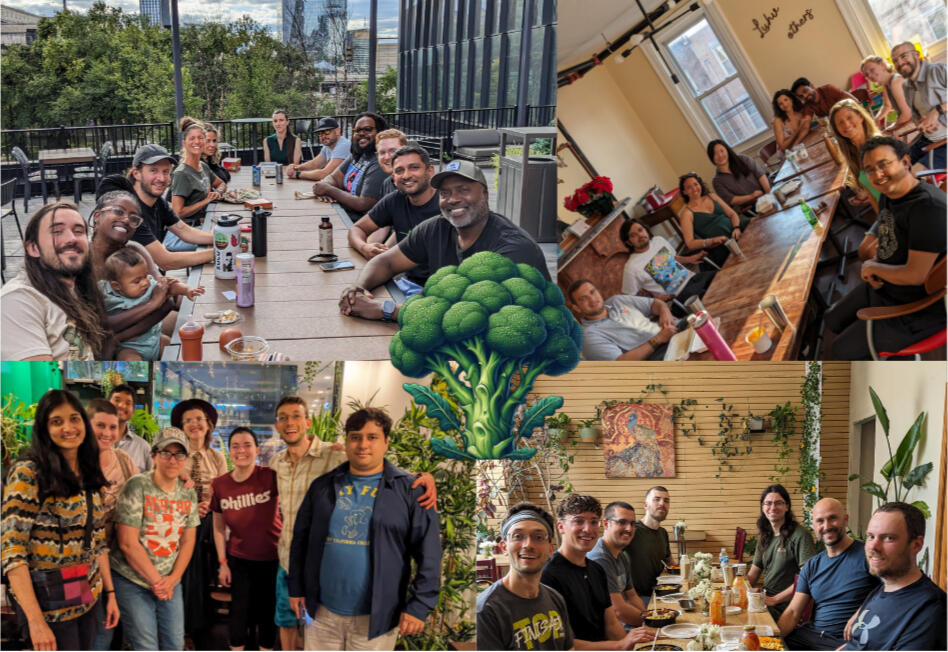
Philly Plantists
Looking to shed a few pounds? Lower your carbon footprint? Boost your karma?Plantists is a dining club for folks who want to eat more plants! We meet at restaurants around the city, order herbivore food, and chill for a while. If you’re a friendly character hoping to improve your diet — to whatever degree, for whatever reason — this is the group that’ll make it easy.
Good habits aren’t built by will power; they’re built by making better behavior fun! We all have different motivations and goals, but we all face a similar struggle — it’s freaking hard to change!The first steps on the path are often the hardest, and they’re much easier if you join a big group of fellow hikers — who happen to be having a good time along the way.Our gatherings are lightly structured so that everyone will connect meaningfully, no matter how fluent at small talk. And whether you’re 24 or 42 or 65, Plantists has a place for you.We don’t want your money, we don’t even take donations. We’re just a community of friends hanging out and growing together.
© 2025. All rights reserved.
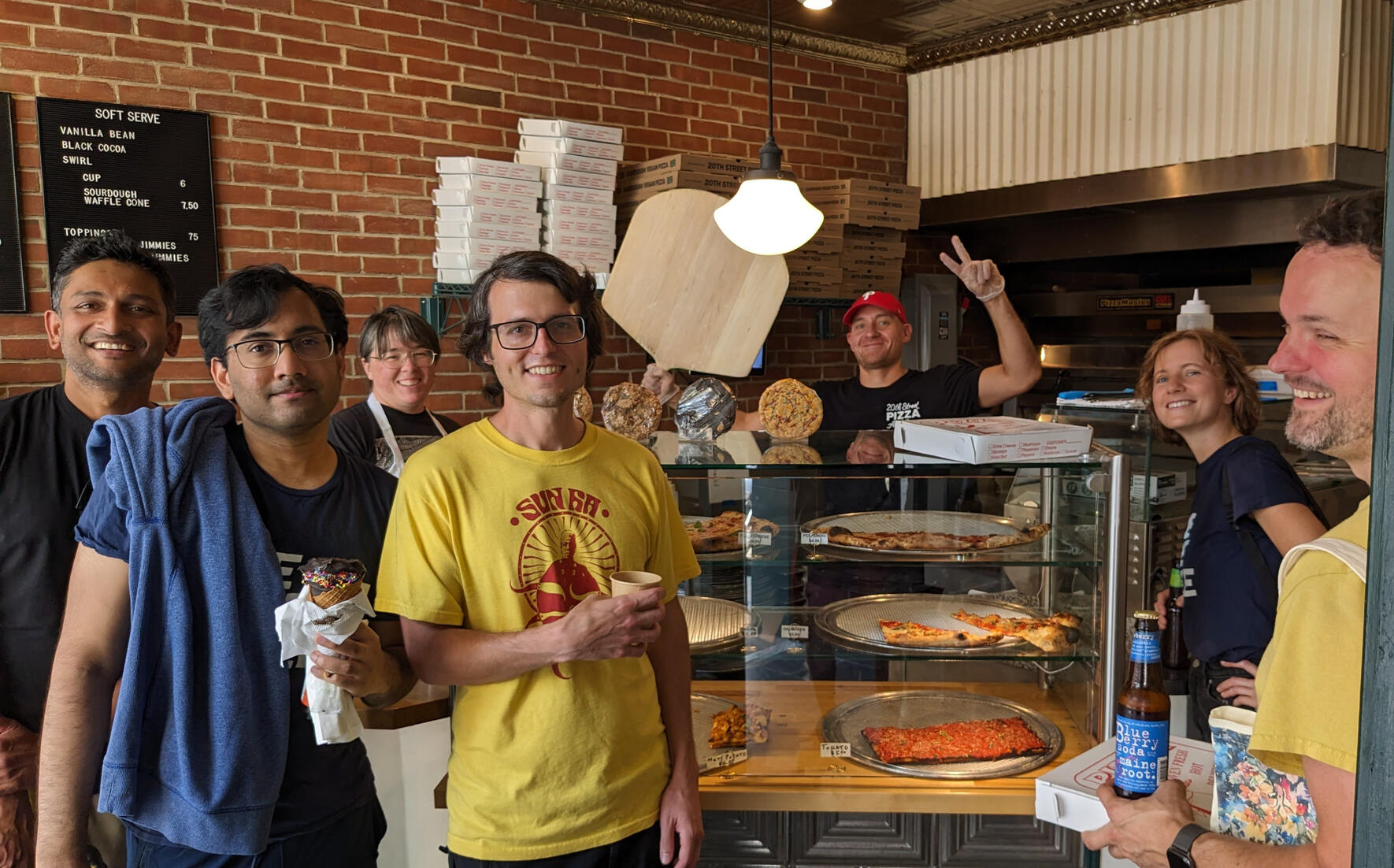
contact us
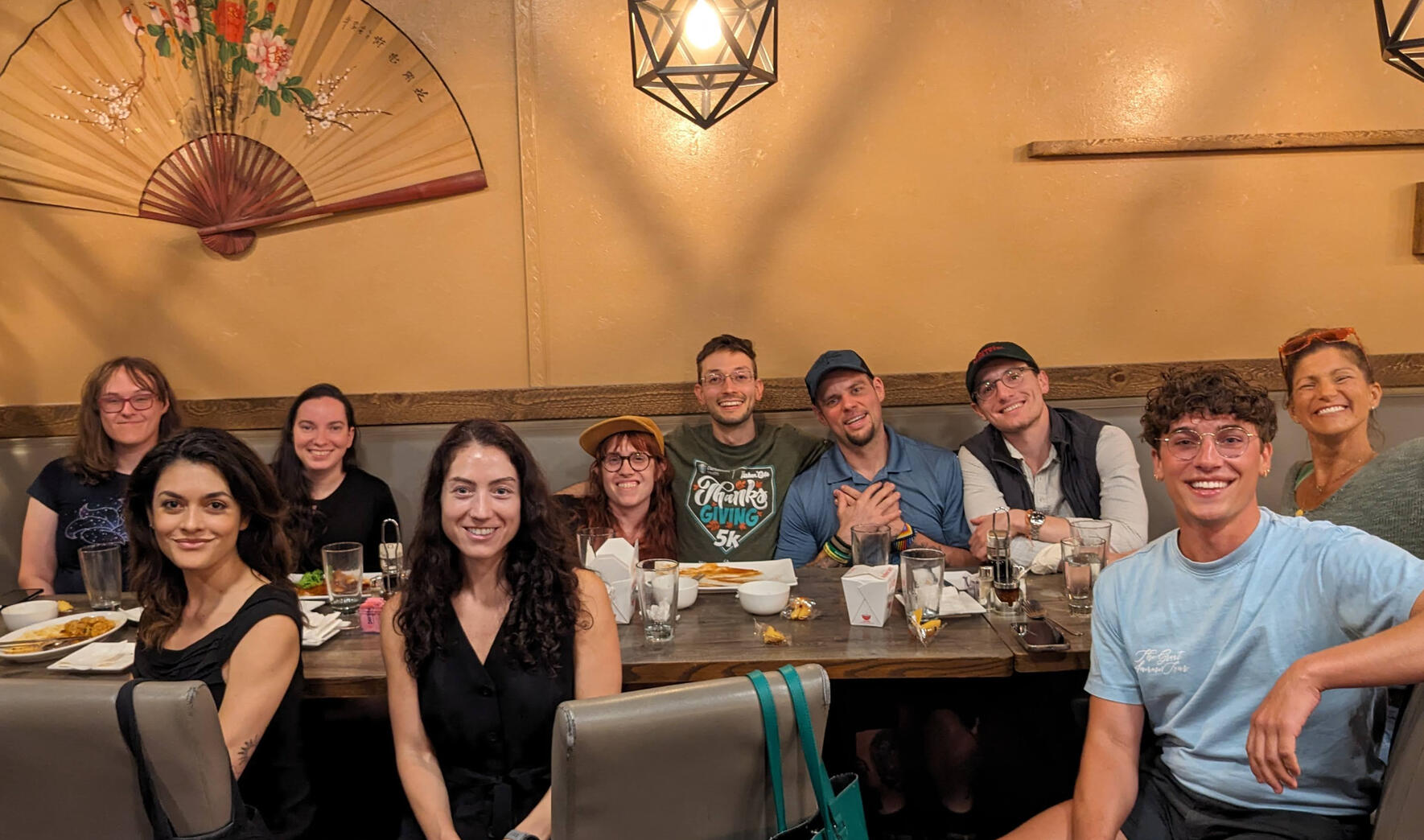
Join the Fun
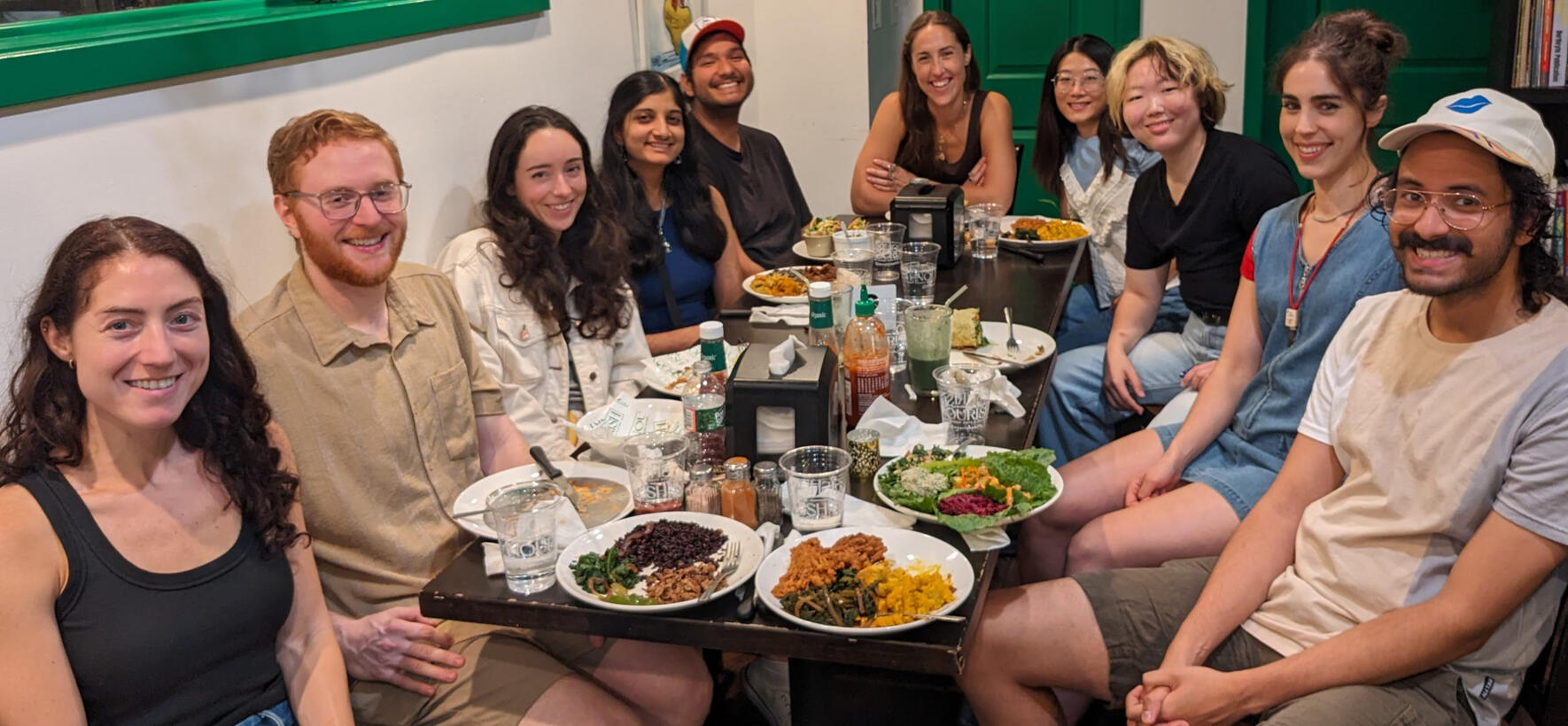
FAQs
Is this free?
Yep! You gotta pay the restaurant for your meal, of course, but Plantists is priceless. We're not a business, not even an officially incorporated nonprofit — just a bunch of low-ego people who appreciate having enjoyable company as we pursue our nutritional aspirations.
What's the mission here?
It's dang hard to improve alone. Who hasn't failed to live up to their hopes for themselves?The solution is social — solidarity has power. This is why fitness classes go for $30 a pop when you could often do the same exercises by yourself, alone. The same insight applies to eating better: It's hard to train without teammates, and it's hard to change without teammates. Why not a dining group where we support each other while building the new food habits we want?Chilling with friends over meals is far more enjoyable than the average spin class — and may well have a bigger impact on our overall health.A healthier microbiome, reduced blood pressure, a slimmer waistline, enhanced athletic performance, whatever you're after — there are lots of benefits to consuming more plants. Subbing out standard American grub for plant-based fare even just a few meals per month gets us on the road to better.We don't judge each other's reasons and we don't let perfect be the enemy of good. Every single meal counts.
How does it work?
If you're interested in attending a Plantist gathering, register here. You'll then receive a meal invitation by email for a date you've indicated will work for your schedule.Simply show up and you'll meet a mix of members and other new attendees, with a volunteer coordinator providing light structure to help everyone make the most of the gathering.
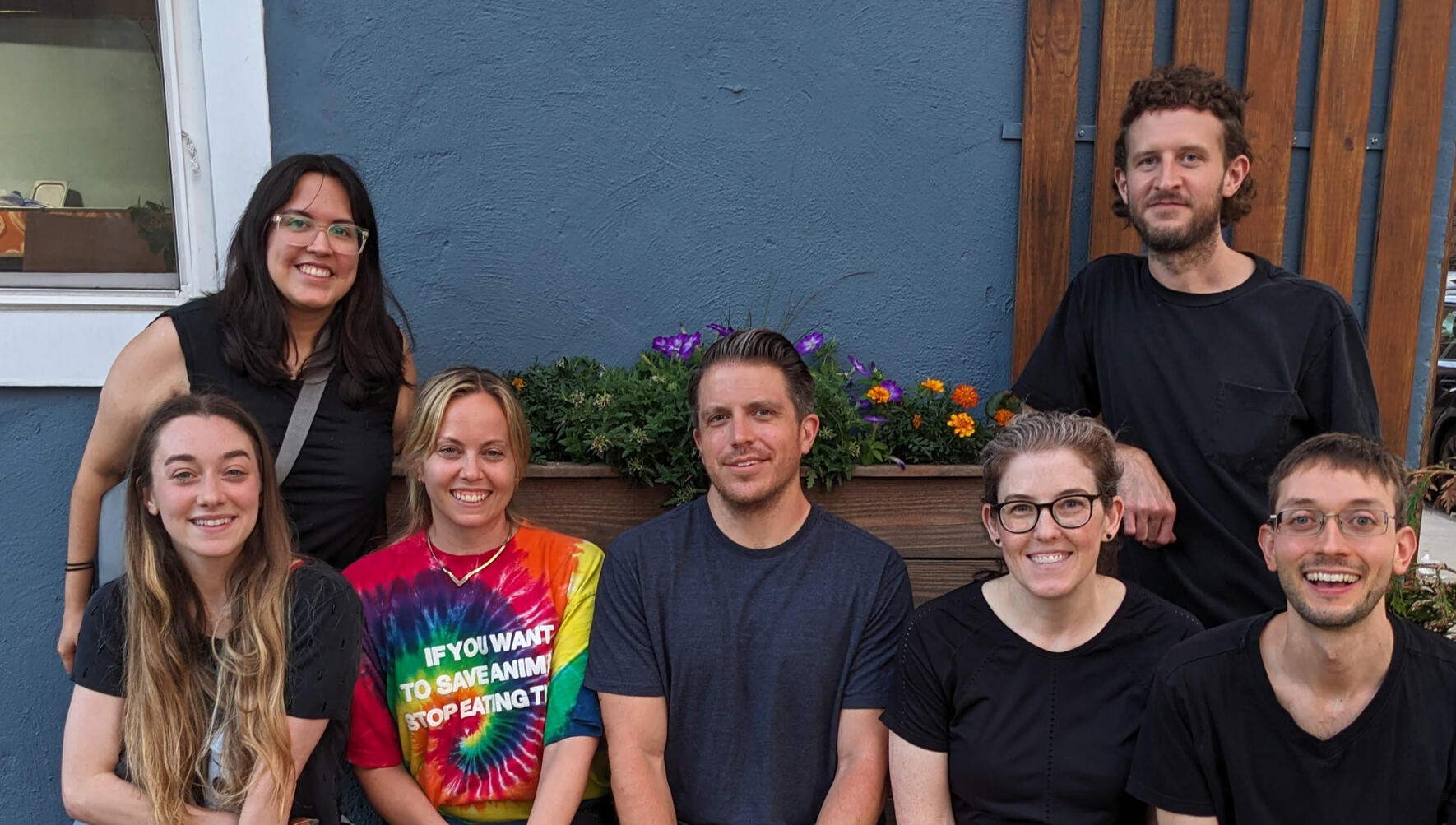
Why?
Better You, Better World
People who eat diets high in animal protein are 4x as likely to die of cancer as those who eat diets low in animal protein. (Smokers are only 3x as likely to die of cancer as nonsmokers.)1.5 acres can make 375 pounds of meat or 37,000 pounds of plant-based food. It takes 50 to 100 times as much land to produce a kilocalorie of beef than a kilocalorie of plant protein.The vast majority of deforested rainforest land is used as grazing area for livestock. Over 80% of the world’s farmland goes to animal agriculture, and this land produces just 18% of our calories.Over 80% of starving children globally live in countries where food is fed to animals that go on to be eaten by Western countries. In the United States alone, the food fed to livestock could feed 800 million people.To produce a single gallon of milk, one thousand gallons of water are needed, the same amount of water used to shower for two months. A full third of all the fresh water humans use goes to livestock, 10x the amount that is used in homes.Meanwhile, waste from a farm of 2,500 cows equals the waste from a city of 400,000 people. Every minute, 7 million pounds of excrement are produced by livestock, going on to poison waterways.70% of the antibiotics produced globally are used for livestock, weakening the effectiveness of antibiotics to treat human diseases.Animal agriculture is the top contributor to the risk of zoonotic pandemics, with 75% of all emerging infectious diseases being zoonotic.14.5% of all anthropogenic greenhouse gas emissions come from global livestock, more than the entire transportation sector combined.